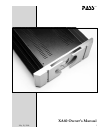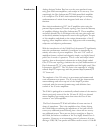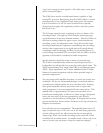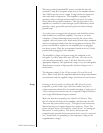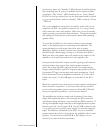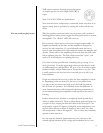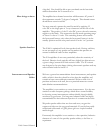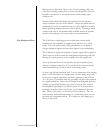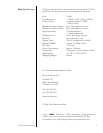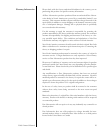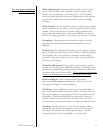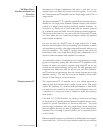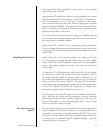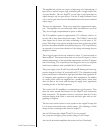
4
XA60 Owner’s Manual
We have provided a standard IEC power cord that fits into the
standard 15 amp IEC receptacle at the rear of the amplifier chassis.
Two XA60’s may be run on a single 15-amp circuit in conjunction
with other audio components. This amplifier is equipped for
operation with an earth ground provided by the users AC outlet.
Never defeat this ground connection. The signal ground of this
amplifier is connected to earth through a power thermistor, which
provides a safety ground but provides protection from irritating
ground loops.
As a safety issue we suggest that the power cord should be the last
cable installed on your power-amplifier. You may, if you wish,
substitute a 15-amp aftermarket power cord for the one we have
supplied. Only use power cords, which meet all local safety standards
and carry acceptance marks from the local regulatory authority. The
power cord should be attached to the amplifier prior to plugging
into house power. Place the rear-mounted switch in the off (down)
position before plugging in this amplifier.
The amplifier’s voltage and current rating are indicated on the
rear panel. It will be either 240 volts, 220 volts, 120 volts or 100
volts, all units protected by a type 3-AG slow blow fuse of the
appropriate ampacity. The operational voltage is not user changeable.
Transformers are input voltage specific and their change is not a
trivial matter.
The frequency rating of the AC line source is 50 to 60 Hz in all
cases. Please verify that the amplifiers indicated voltage requirements
are consistent with the supplied voltage and current at your location.
Looking at the rear panel you will see the IEC AC power cord
receptacle, a power switch, type 3-AG fuse holder, two pairs of
output connectors which allow for speaker bi-wiring, a single pair of
5 way connectors for remote turn-on, a single RCA input connector
and a single XLR balanced input connector.
Make sure that the rear panel power switch is off (down). Plug
the AC cord into the back of the amplifier, and then into the wall.
Then turn the power switch on (up). The lights in your house may
blink when the power supply charges the capacitors. (Note: The
power switch is never to be used as a “safety device” or “emergency
disconnect” for this product. This device will not provide
comprehensive personal shock protection in the event of a reversed
hot / neutral, lack of grounding or other improper wiring of the
supplied mains voltage.)
Setup



